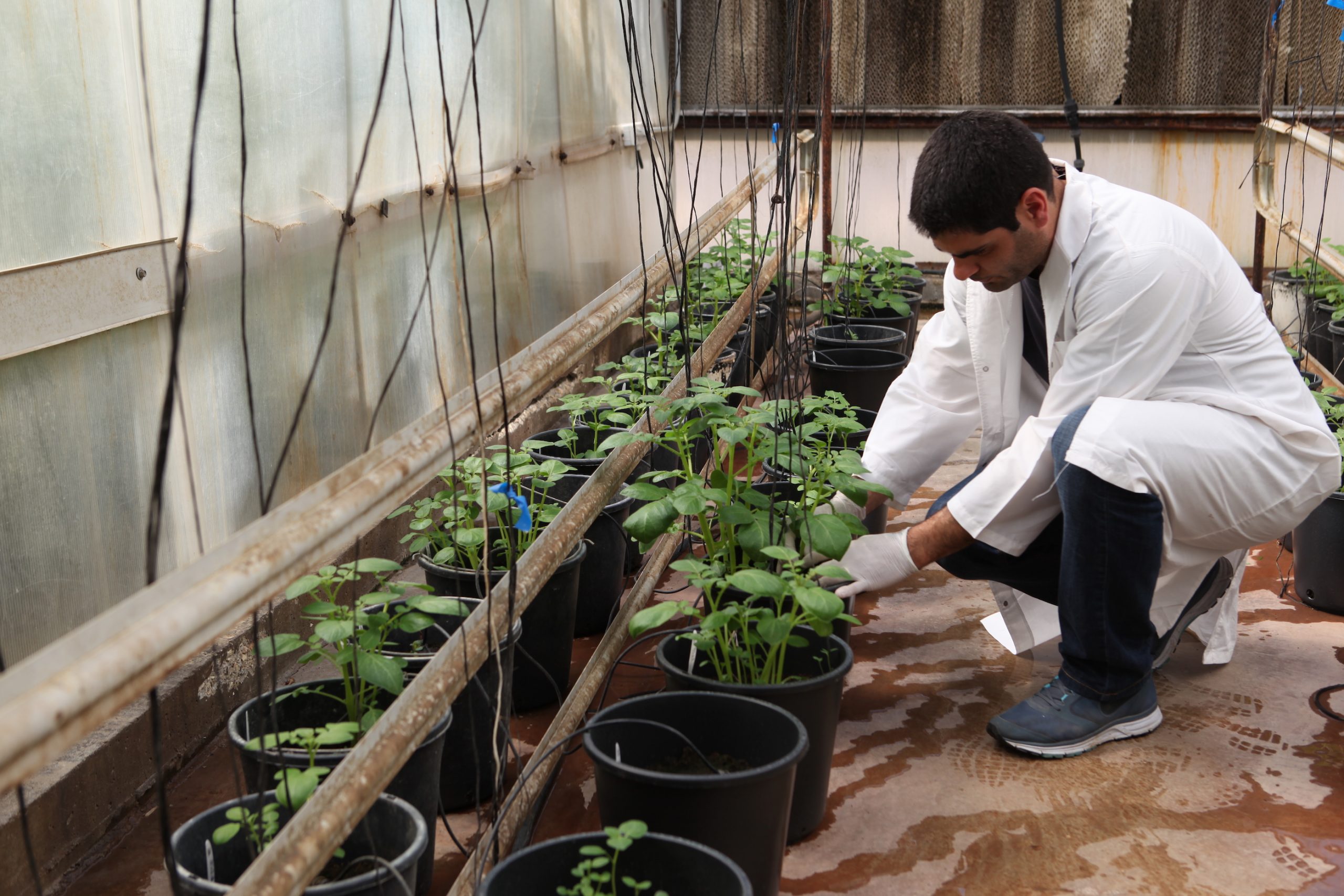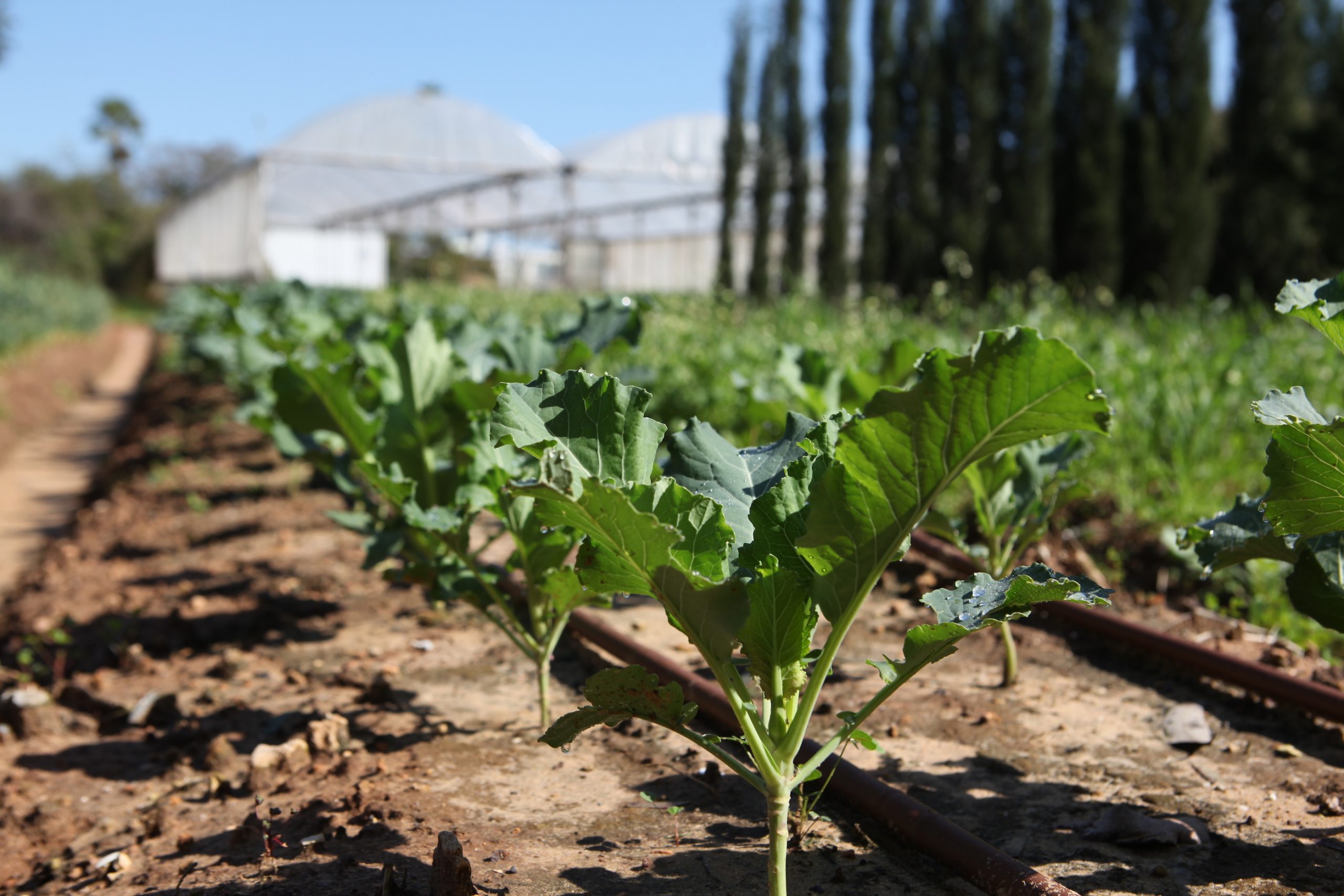
Dear Mr. Ambassador, before we start discussing the issue of food security, let me ask you about the latest pandemic situation in Israel.
Unfortunately, Israel is suffering today from a second wave of coronavirus. Intensive efforts are underway to lower the infection rate and reduce morbidity. Governments around the world are grappling these days to find the best balance between reopening the economy and health considerations. I should stress that like the Czech Republic, we too managed the first wave very well. By the beginning of June, we started to see a growing rise in the number of new cases of Covid-19. I need to remind the readers that Israel tests at record high numbers, up to 25 000 people get tested every day. It is possible that there is a connection between the high number of people tested positively for Covid-19 in Israel and the high number of tests completed. It is unacceptable to have such high figures and the country has adopted again tight measures.
Prime Minister Netanyahu decided to appoint a so called coronavirus czar, who is responsible for dealing with Covid-19. This person is Prof. Ronni Gamzu, the CEO of Tel Aviv Sourasky Medical Center (Ichilov Hospital) and he will take all the measures necessary for fighting the pandemic. The whole country is now determined to bring down the numbers of new cases of Covid-19. Facemasks are obligatory everywhere and the authorities enforced 14 days mandatory isolation for anyone who has been near a Covid-19 positive person. Once a person is identified thanks to the HaMagen technology system, he or she receives an identification message and this person must self-isolate. HaMagen is an app that can tell you have been in the presence of anyone who has been diagnosed with the coronavirus. The app crosschecks the GPS history of your mobile phone with historical geographic data of patients from the Health system. We still do not know how the schools will open at the end of this month. Although the situation is upsetting, I am positive that Israel, with its self-determination and technology, will manage to overcome the second wave. As many Israelis love Prague and the Czech Republic, we are waiting for the numbers of Covid-19 cases to drop and to open possibility of travel, business and scientific cooperation again. We are in touch with the government here to have an exchange of experience and best practices in fighting this pandemic.
There are many aspects well documented with regards to Covid-19, particularly linked to medical research, pharma research or science and technology innovations. However, the issue of food security has been largely overlooked. In fact, the first time I heard about this cause was during my recent interview with Prof. Sklenička, Rector from Czech Technical University.
The complex global systems created in the era of accelerated globalization are threatening to collapse. Disturbances and interruptions have been encountered along the entire global supply chains from production in the field, to the international marketing of food.
We are also seeing a decline in demand and buying-power due to the global economic recession, a shortage of farm hands and the contraction of disease amongst workers in the food-packing factories.
Today, we still have not truly distanced ourselves from the interruption in the global food supply mechanisms. Food prices continue to rise. Tens of millions of people in the Middle East, Africa, Asia and other areas of the world have joined the 820 million people that, already prior to the pandemic, were defined as under-nourished and in danger of hunger or starvation. The World Bank estimates that approximately 40 million people have entered the category of “immediate risk” in western Africa alone. U.N. reports, and first among them that of the International Food and Agriculture Organization (FAO), warn of a rising threat of hunger, and the U.N. called upon the international community to maintain open commerce and to refrain from national protectionist policies. According to the UN report on The State of Food Security and Nutrition in the World 2020, the world is not on track to achieve Zero Hunger by 2030 and, despite some progress, most indicators are also not on track to meet global nutrition targets.
What we can do to prevent a global food crisis, which may result in hunger, political, and security instability and rampant migration?
Without doubt, international trade systems for food and agricultural necessities such as fertilizers, machinery, fuel, etc. must be kept open and functioning. At the same time, states would do well if they increased their local food production capacity. This food, in addition to supplying caloric needs, must be healthy, nutritious and available to everyone and at an affordable price. For this, local farming requires significant incentives and support in order to increase its production and variety.
The State of Israel, having proved itself over a period of decades an expert in successful innovative farming in some of the most challenging desert and drought prone areas of the world, can be a supplier of quick, efficient and low-cost solutions for these needs. Drip-irrigation is one of the best examples of this. It is amazing that till this day, most of the agricultural crops the world over are still grown by “dry farming”, i.e. farming that is reliant on rain for field irrigation. Moving to irrigated farming would increase the crop yield, would save water and greenhouse gases, and would, over time, create food security. Vegetables, for instance, could be grown several times during the year via drip-irrigation as opposed to only once a year when relying on natural precipitation during the rainy season.

The drip irrigation has gotten quite a lot of attention, even though this Israeli invention was discovered more than five decades ago. I am sure there have been many other advanced technologies since then I will mention “precise agriculture” which supplies all plant needs on an almost individual basis.
Today, sensors are capable of informing precisely how much water and fertilizer is required for each tree and from what diseases it is suffering, and accordingly, an individualized treatment, which is often administered via drones or other methods. The use of satellites for information gathering and remote sensing, computerized greenhouses and continuous monitoring of temperature, humidity, pests/insects, etc. from afar also increase agricultural crop yields and create more food.
Everyone knows that without water, nothing can be grown. In arid Israel, unlimited solutions have been found and implemented, such as the use of purified sewage water for farming, or even the use of saline water; leak prevention and/or the identification of their source in water supply systems; Hydroponics – a form of farming that allows for growing vegetables in water. Water conservation, irrigation monitoring and many other solutions developed in Israel can be implemented relatively easily and at low costs.
The latest trends also suggest limiting animal-based food and I know that culinary tradition in Israel already has many meat free products.
Yes, the Covid19 crisis has also exposed the exaggerated reliance on animal-based food. The closure of slaughterhouses and meat packaging facilities, due to the contraction of the disease by their employees, gave a strong push to the market of plant-based substitutes for protein. This industry is seeing an accelerated growth and many technologies such as cultivated meats will begin to see mass use in the coming years. This process will also be accelerated since we know that cultivation of livestock creates heavy damage to the planet and is unsustainable and must therefore be reduced. As a result, the importance of protein sources whose origin is found in plants or cultivated meats, will grow considerably. In Israel, there is extensive research in this area and Israeli startups are on the frontline of the global development of such foods.
The pandemic has proven that the notoriously known saying “future is in collaboration” is not a cliché, but necessity…
The need to strengthen local agricultural produce grows even stronger against the backdrop of the ever-worsening phenomena of climate change, widespread global desertification and water crises, and the extinction of animal and plants species, and with it, a huge damage to biodiversity. These and other issues are threatening our ability to supply food over the long term. As a result, there is great importance in preparing ourselves for guaranteeing food security and for agricultural production by means that do not adversely affect the environment and the climate.
In conclusion, the Covid-19 crisis is still very far from being resolved and we will continue to experience its ramifications in almost every realm of our daily lives. Therefore, it is more important today than ever before to understand the fragility of the global food supply chains, the vulnerability of food security to different sources of disturbance, and to increase local food production in wide scale. Israel would be both happy and honored to share its rich experience and knowledge in these areas
By Linda Štucbartová
Photos By: Embassy of Israel

